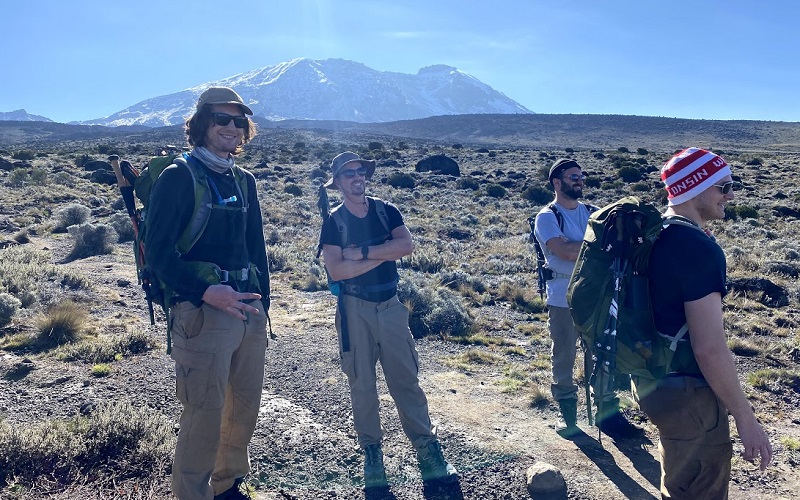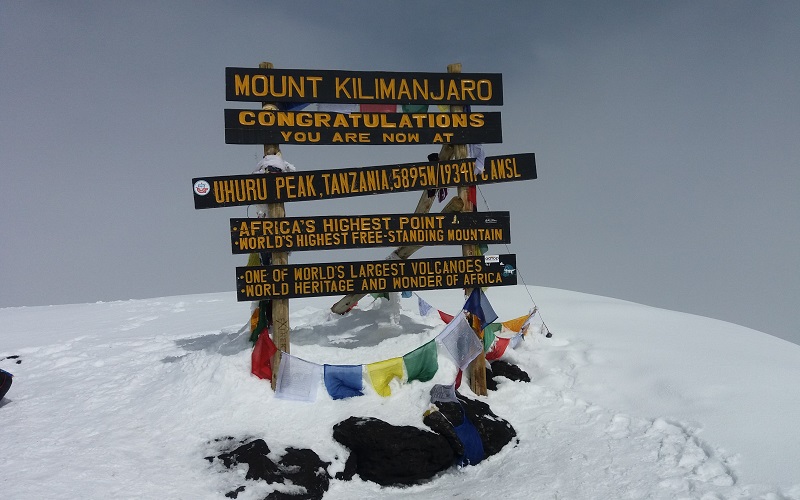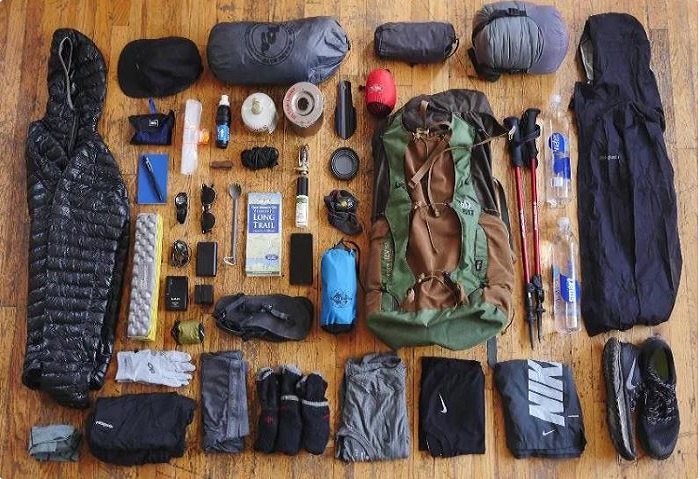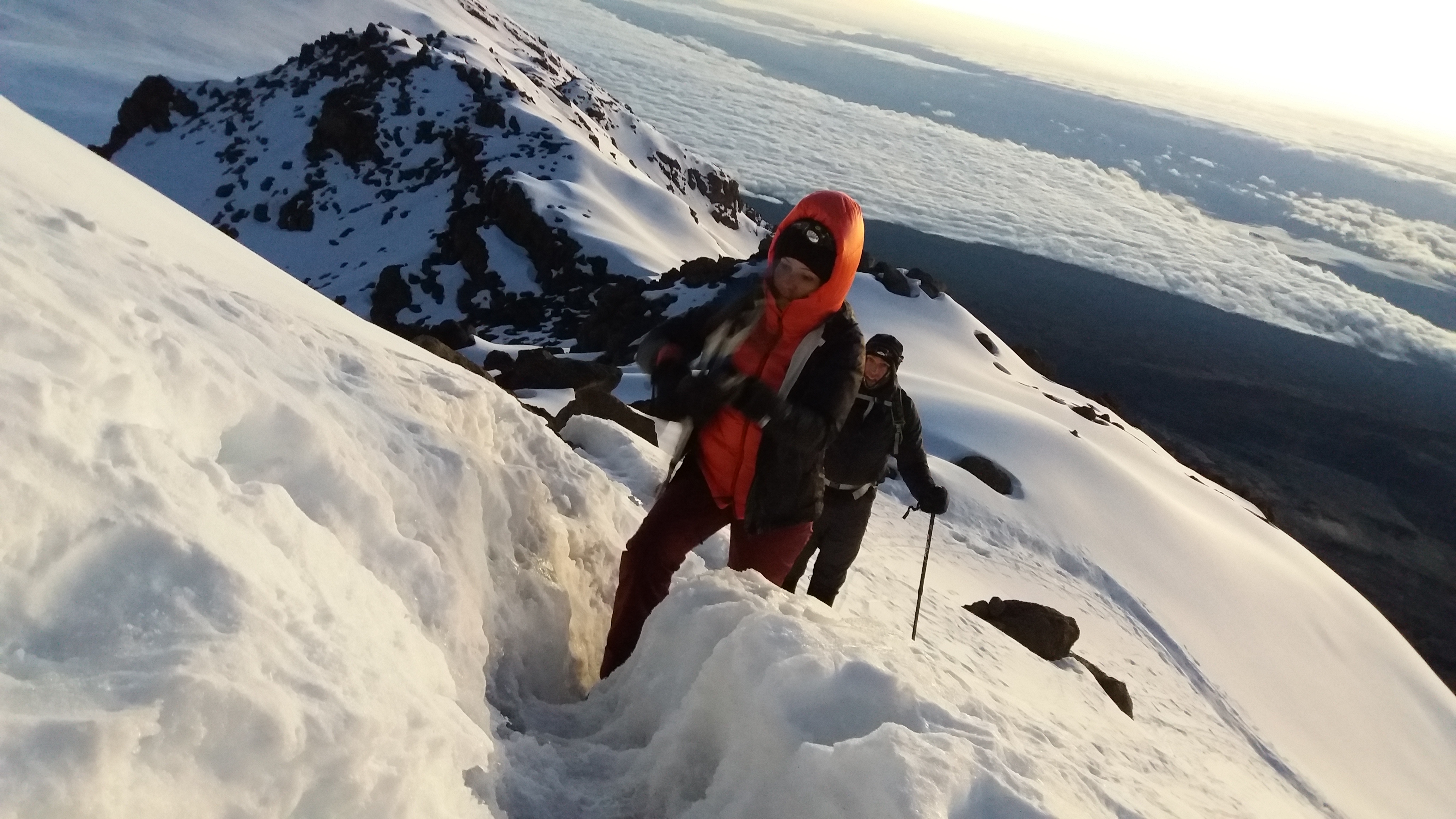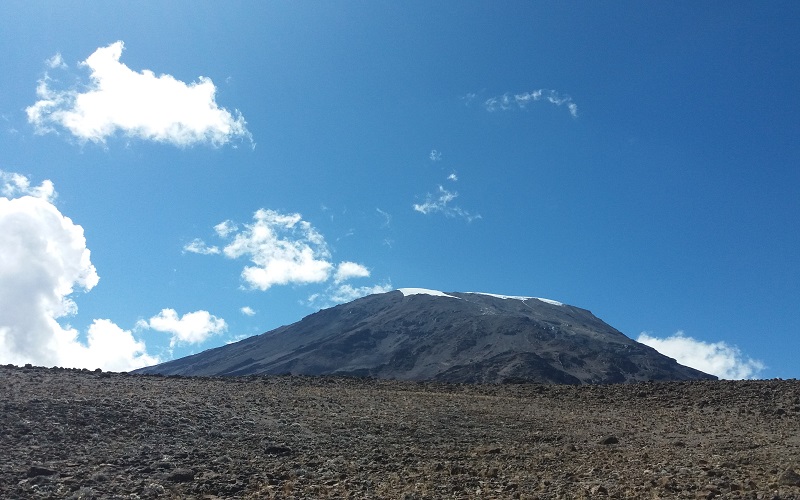
6 Days Umbwe Route:
The Umbwe Route has a well-deserved reputation of being the most challenging route to the summit of Mount Kilimanjaro. Approaching from the south, the Umbwe Route is a short, steep and direct climb of Mount Kilimanjaro. After reaching Barranco Camp, the trail follows the southern circuit to the summit. The descent is done via the Mweka Route.
Umbwe is considered to be a very difficult and taxing route, one that should only be attempted by strong hikers who are also confident of their ability to acclimatize to the high altitude of Mount Kilimanjaro.
ITINERARY
Arrival
• You will be picked up at the Kilimanjaro international airport and transferred to your hotel in Moshi town, you will meet your guide who will brief you on your upcoming trek
________________________________________
DAY 1: Umbwe Gate (1,800 m) - Umbwe Cave (3000 m )
Hiking time: 6-8 hours
Habitat: Montane forest
• The climb starts from Umbwe Gate (1,800 m.) The path follows a ridge between two deep valleys up through the dense montane forest. The camp is perched between huge trees and thick undergrowth. There is no water available at this campsite, so we must carry from the gate all the water needed for drinking, food preparation and cleaning.
________________________________________
DAY 2: Umbwe Cave (3000 m) to Barranco Valley (3950 m)
Hiking time: 4-6 hours
Habitat: Moorland
• The path gets steeper on this section, as you get out of the forest along the Umbwe ridge the route descends slightly to the Barranco camp situated in the valley.
________________________________________
DAY 3: Barranco camp (3950m) - Karanga Camp (4550m)
Hiking time: 4-5 hours
Habitat: Semi desert
• A steep climb up the eastern wall leads us just below the Heim Glacier, where we may have some spectacular views of Kilimanjaro. We then take a steep exit up the Great Barranco Wall, which divides us from the southeastern slopes of Kibo, the trail continues down into the alpine desert of the Karanga Valley, finally we have a steep climb up Barranco Valley to Karanga camp (4,000 m).
________________________________________
DAY 4: Karanga camp (4550m) - Barafu Camp
Hiking time: 4-5 hours
Distance: About13 km
Habitat: Alpine desert
• After breakfast at the Karanga valley camp, you will walk a ridge and enter a cold desert for about 4 hours and then reach the Barafu Hut. Crews will collect water from the last water stop at Karanga Valley in morning, as there is no water at Barafu camp. Barafu is the Swahili word for “ice” as it is a bleak and inhospitable camping area to spend the night. Totally exposed to the ever-present gales the tents are pitched on a narrow, stony, and dangerous ridge. Make sure that you familiarize yourself with the terrain before dark to avoid any accidents as this is a dangerous area. The summit is now 1345m above you, and you will make the final ascent tonight. Prepare your equipment, ski stick, and thermal clothing for your summit attempt. Make sure and replace the batteries in your headlamp and camera and make sure you have a spare set available as well. To prevent freezing, it would be wise to carry your water in a thermal flask. Go to bed around 7 PM and try to get some good. Try not to sleep more than 5 hours.
________________________________________
DAY 5: SUMMIT ATTEMPT Barafu camp (4550m) - Uhuru Peak (5895m) - Mweka Camp (3100m)
Hiking time: 8 hours to reach Uhuru Peak 7/8 hours to descend to Mweka camp
Distance: ~ 7 km ascent – 23 km descent
Habitat: Stone scree and ice-capped summit
• You will rise around 11:30 PM and have some hot tea and biscuits before you shuffle off into the night. You will head in a northwesterly direction and ascend through heavy scree towards Stella Point on the crater rim. This 6-hour walk to Stella point is for many climbers the most mentally and physically challenging part of the trip. At Stella Point (5685m) you will stop for a short rest and will be rewarded with the most magnificent sunrise you will witness in your lifetime (weather permitting). From Stella Point you will normally encounter snow to Uhuru Peak (2 hour ascent). The time you will spend on the summit will depend on the weather conditions. Do not stop here for too long, as it will be extremely difficult to start again due to cold and fatigue. Enjoy your accomplishment as this is a day to remember for the rest of your life. The walk back to Barafu from the summit will take about 3 hours. Here you will have a well earned but short rest. You will then collect the rest of your gear before heading down to Mweka hut (3100m). This route is not difficult and will take you down the rock and scree path into the moorland and eventually into the forest. The camp is situated in the upper forest and mist or rain can be expected in the late afternoon. Dinner and washing water will be prepared. Drinking water, soft drinks, chocolate, and beer is available from the camp office if you so desire.
________________________________________
DAY 6: Mweka camp (3100m)- Mweka Gate (1980m)
Hiking time: 3 hours
• After Hot breakfast from in Mweka Campsite you will start walking slowly towards the mountain gate the walk takes about 3hours to get to the Mweka campsite where our driver will pick you and transfer you to the Hotel in Arusha Or Moshi.
PRICE PER PERSON (US DOLLAR):
| Size | 1 pax | 2 pax | 3 pax | 4 pax | 5 pax | 6 pax | 7 + pax |
|---|---|---|---|---|---|---|---|
| Price | $2800 | $2380 | $2290 | $2240 | $2200 | $2160 | $2130 |
Price Include
>>Return transfer from Kilimanjaro International Airport to accommodation in Moshi;
>>Return transfer from accommodation in Moshi to the entry gate into Kilimanjaro National Park.
Professional guides, licensed by Kilimanjaro National Park. All our guides are well-equipped to handle medical emergencies as they have undergone various High-Altitude Medical Emergency Training to save the lives of climbers who fall sick on the mountain.
Dedicated support crew (assistant guides, camp master, porters, cooks, etc.).
One night at 3* hotel before the expedition and one night after; The hotels have everything for your comfortable stay - caring staff, nice rooms, reliable Wi-Fi, restaurant and swimming pool).
Tented accommodation on Mount Kilimanjaro (modern, comfortable 4-Season tents North Face VE-25
Please Note: All hotel accommodation is based on a sharing basis (i.e. you will be sharing with your travel companion a twin/double room. If you travel solo on a group expedition, we will room you with a same-sex participant. Single occupancy in a hotel is available upon request and extra chargers apply.
Breakfast in the hotel before and after the trek.
All meals on the trek. Our Kilimanjaro diet includes energy-rich and highly nutritious meals prepared by our professional high-altitude cooks. In our menu you will find different soups, garnishes, several types of fish and meat, fresh fruit and vegetables; vegetarian/gluten-free/halal options are available at no extra cost.
All drinks on the trek (juices, coffee, tea, hot chocolate and water).
All park fees collected by the Kilimanjaro National Park (conservation fees, camping fees, crew fees, rescue fees and all other fees collected by the Tanzania National Parks Authority).
>>2-inches thick and comfortable sleeping mattresses.
>> All group equipment (spacious and comfortable dining tent, camping table and chairs, crockery and cutlery).
>> Dry bag (to protect your duffel bag).
>> Portable toilets (one unit can be comfortably shared between up to 3 people).
>>Bottled oxygen and pulse oximeter.
>>GPS-tracking service.
>>Complete medical kits including Diamox.
PRICE EXCLUDED
-Travel Insurance:
- Entry visa for Tanzania:
- $100 per person for USA Citizens and $50 per person for All Other Nationalities.
Tips for the trip crew:
Personal Gear: Though all group camping equipment is included in our Kilimanjaro packages, your personal outfit (mostly clothes for climbing) is not. Thus, you should bring all personal gear for your Kilimanjaro adventure. Our consultants will let you know what you will need for the expedition.If you do not have certain gear, you may hire everything necessary from us. All equipment is new (we renew our stock every six months). However, remember that personal gear hire is not included in your tour price and extra fees apply.
